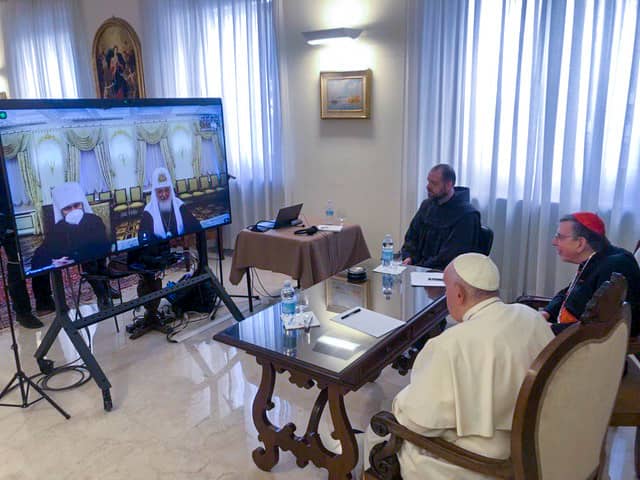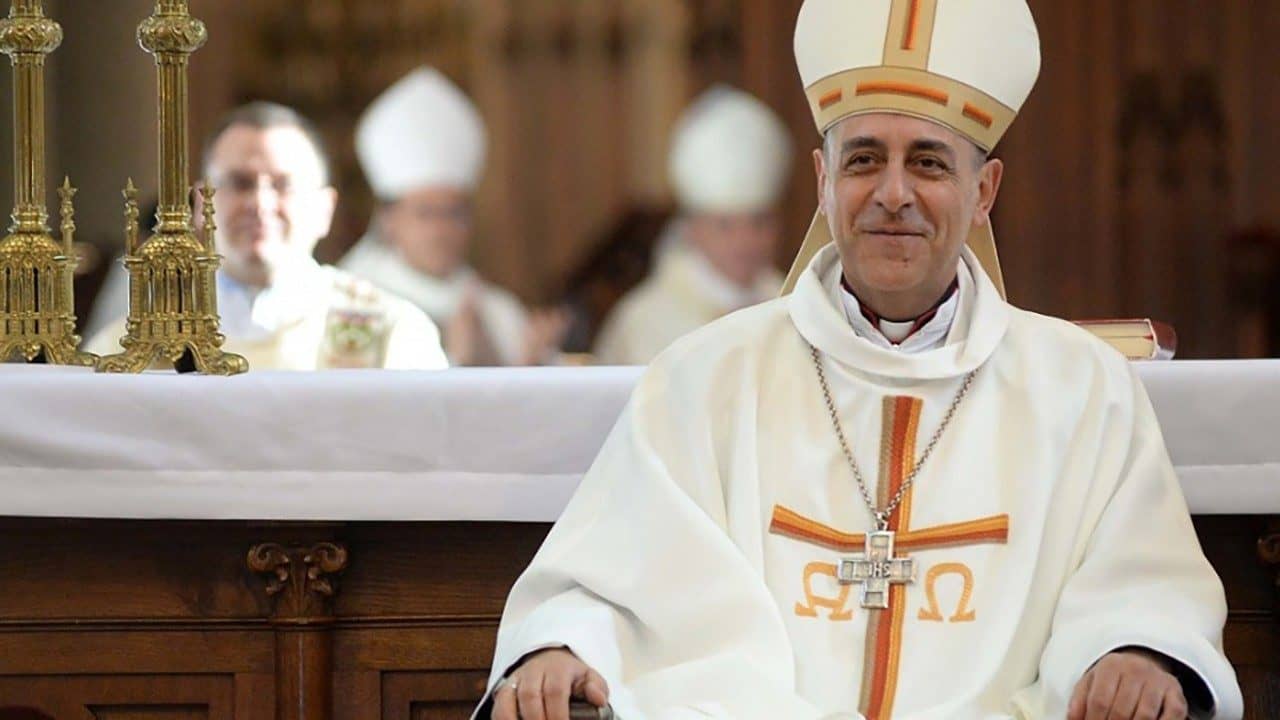ROME – Generally speaking, almost anytime there’s a tense situation unfolding someplace in the world, you can count on popes to add their voices to appeals for peace and calm. How much difference such fervorinos actually make may be open to question, but they’re usually as regular as clockwork.
That rule of thumb makes it noteworthy that as a cycle of street protests in Iran nears the end of its first full week, having broken out last Thursday and so far leaving a reported 21 people dead in clashes between protesters and police, there’s been virtually no comment from the Vatican.
Since Thursday, Pope Francis has had natural chances to express concern and prayer at least three times – in his Angelus address on New Year’s Eve, in another Angelus on New Year’s Day, and his regular General Audience on Wednesday. He didn’t do so on any of those occasions, despite addressing a number of other causes of concern, including recent attacks in Egypt on the country’s Coptic Orthodox minority.
Other world leaders certainly have not been observing a rule of silence, notably including U.S. President Donald Trump, but also French President Emmanuel Macron, who made a phone call to Tehran on Thursday urging “restraint,” and Russian President Vladimir Putin, whose Foreign Ministry released a statement Jan. 2 asserting that “external forces” are fueling the uprisings.
RELATED: Pope prays to ‘convert hearts’ of terrorists who struck Egypt’s Christians
There’s also been no communique from the Vatican’s Secretariat of State, its main diplomatic agency, and no media commentary from senior Vatican officials. Coverage of the protests so far in L’Osservatore Romano, the Vatican newspaper, has been right down the middle and restrained, providing the latest news but little else.
Word to the wise: None of this, in the slightest, means the Vatican isn’t paying attention.
On the contrary, there are few diplomatic relationships in which the Vatican has invested greater effort in recent years than the one with Tehran, seeing it as fundamental not only to a series of thorny situations around the world, including Syria and nuclear disarmament, but also to a broader quest to avoid a much-feared “clash of civilizations.”
On Tehran’s side too, there are plenty of clear signs it takes its ties with Rome seriously. For one thing, Iran’s diplomatic relations with the Vatican predate Washington’s by 30 years, and they survived the shock of the Iranian Revolution in 1979 uninterrupted. Here’s a little-known but telling fact: Still today, Iran has more diplomats accredited to its Vatican embassy than any other nation except the Dominican Republic.
Fundamentally, Iran does not want to be perceived as a “rogue state,” and positive engagement with the planet’s most visible Christian leader is a powerful way to distinguish itself from radical forces within the Islamic world. Further, being on good terms with the pope is also perceived as a way for Tehran to counter its generally frosty relationship with other Western powers, above all, the U.S. in the Trump era.
Recent months have brought clear signs of alignment between Rome and Tehran, on matters large and small.
Francis and Iranian President Hassan Rouhani saw eye-to-eye, for instance, in denouncing the decision by Trump to transfer the American embassy in Israel from Tel Aviv to Jerusalem. Rouhani even took the step of sending personal Christmas greetings to the pontiff, saying, “It is the responsibility of politicians, scholars, and religious thinkers to create a beautiful world full of peace and moderation, free from violence and extremism with each other’s help, and leave this lasting legacy for the future.”
From geopolitics to retail-level cooperation, when an earthquake struck Iran in November leaving 454 people dead and more than 7,000 injured, a rapid response came from the Catholic charitable group Caritas Italia which sprang into action, with the government’s permission, and its efforts later won praise from Iranian officials.
At a deeper level, many experts on Christian/Muslim relations have argued there’s a natural spiritual affinity between Catholics and the Shi’a Islam that’s dominant in Iran, including a strong streak of popular religiosity and devotion, a blend of scripture and tradition, and leadership by a clerical caste.
RELATED: Pope has a chance to bond with natural Muslim ally
Given all that, the Vatican’s caution on wading into the fray over the developing protests may be understandable.
For one thing, the situation in the Iranian streets now is not clear-cut, at least in terms of what the consequences of speaking out might be. Were the pope to say something perceived as encouraging the protests, it might lead to more violence and coarsen relations with Tehran in the bargain; if the Vatican remains silent, it could be seen as appeasement of Tehran in the face of legitimate aspirations for greater democracy and economic opportunity.
Were this an earthquake, say, or floods someplace, it would be far easier to express solidarity without somehow seeming partisan.
Further, a destabilized Iran would have consequences for the entire region, including Lebanon, Syria and Iraq — all countries, by the way, where the Catholic leadership is often friendly with Iran-allied political factions, including Hezbollah in Lebanon. An Iran in tumult could also slow the push for nuclear disarmament, a cause in which the Vatican was especially active in 2017 – including Francis ending the year by circulating a photo carrying a harrowing reminder of “the fruit of war.”
RELATED: Pope circulates Nagasaki image under heading, ‘The fruit of war’
There’s also the principle – admittedly, one sometimes more honored in the breach than the observance, but still a principle – that Church commentary on the political affairs of a country ought to come from the local bishops rather than the papal representative there.
We recently saw an explicit reiteration of that point in a very different context, the Democratic Republic of Congo. When contacted for comment on recent anti-government protests there that left at least eight people dead, the office of the pope’s ambassador said that “the promotion of social justice and the defense of the civil and political rights of citizens is an integral part of the social doctrine of the Church,” but added it was the place of the Archbishop of Kinshasa, not the Vatican, to say whether the protests were legitimate.
Finally, there’s also the hard truth that the Vatican has another constituency it must consider before making any public statement on Iran, which is the country’s Christian minority. The situation is tenuous, with small historic Christian groups tolerated but consigned to a sort of second-class status, while more recent converts to Christianity from Islam can face open persecution and violence.
(According to some observers, the numbers of such people are not insubstantial. Last year, the mission research organization Operation World named Iran the fastest-growing Evangelical country in the world. In 1979, there were an estimated 500 Christians from a Muslim background in Iran. Today, reports range from hundreds of thousands to more than one million.)
Any pope or Vatican diplomat thus always must weigh whether a particular bit of commentary is likely to make the fate of a fledgling Christian community better or worse, and often that’s a prescription for caution.
The pope will have another natural opportunity to enter the fray over Iran on Monday, when he delivers his annual speech to the diplomatic corps accredited to the Vatican, generally considered his most important foreign policy address of the year.
Given how the stars appear aligned, it’s not clear the smart money would be on Francis saying anything too dicey on Monday. Even if he does decide discretion is the better part of valor, you can be sure that doesn’t mean Vatican officials aren’t in a full, upright and locked position in terms of monitoring the latest Iranian crisis.













